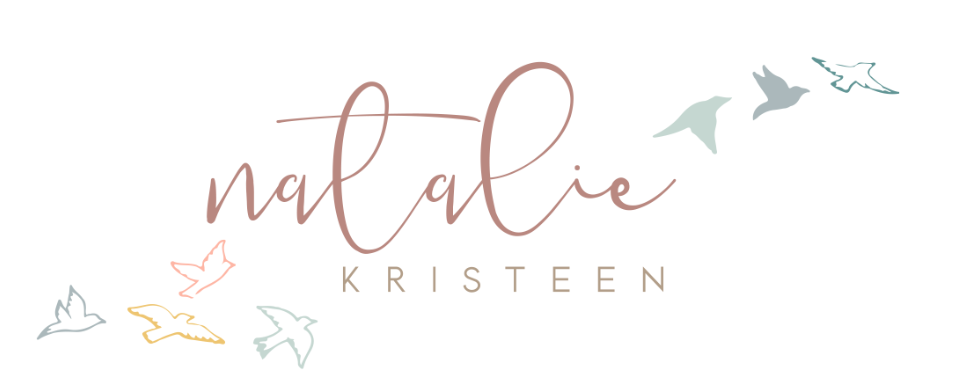Thinking About Adoption? Read This
I wish someone had sat us down and given us ADOPTION 101: POSITIVE ADOPTION LANGUAGE before we signed the papers and announced to the world that we were adopting.
But alas, we didn't educate ourselves in adoption language and we didn't have anyone directly in our life who had adopted and jumping to share with us, so we just launched into the journey and quickly realized how our words were hurting adoption and adoptive families.
Awhile ago I read my very first We're Adopting post on my blog and my heart cringed when I read the sentence, that I had typed: "Why aren't we having our own kids?" It was quickly changed but I wish I knew in those moments what my words were implying when I wrote them, how hurtful they were, what I was saying. I share this now, embarrassed and bummed, but to let you know that I recognize we are all learning and we all start somewhere.
In my extreme excitement, I didn't even realize I was using language that was detracting from the value and validity of adoption and adoptive families. I of course, quickly realized how hurtful this term was, when someone asked me while I was holding my 5 pound new baby boy: "Why don't you want kids of your own?"
We don't know what we don't know until we know. (And are ready/willing to know).
I can't tell you how many times people have introduced my boys as, "This is Sage, the baby they adopted and this is Ira, their real/own baby." Insert my gut wrenching, my heart cringing, and then gracious but confident and necessary correction: "They are both my very real and own babies."
It's never about being "PC," it's always about loving each other well. You know?
So, are you thinking about adoption?
If you are, yay! I am a huge advocate of ethical adoption. There are well over 100,000 children waiting to be adopted out of foster care as well as countless expectant mamas making adoption plans.
Before you dive into the process and signing papers and raising funds and announcing to the world, I hope you'll read through this and really take it to heart. Choosing to become an adoptive parent is a privilege and a responsibility. I believe that part of that responsibility is furthering other's education about adoption (when appropriate) and helping fight the stigmas around adoption - stigmas like: children who join our families via adoption aren't our "own". Why would I expect someone to use the most loving terms regarding adoption if I don't even use them?
Imagine hearing your parents refer to your sibling (their biological child) as their "own" but you as their "adopted"? Ouch.
Another term I have heard even prospective or current adoptive parents use is "put up for adoption."
"The term "put up for adoption" is actually from the orphan train era. During a period in America's history from 1854 to 1929 there was an estimated 200,000 children who were orphaned, abandoned, or abused and neglected. These children, many from New York, were placed on trains and sent to homes throughout the country. They were "put up" on platforms for families needing able-bodied children to work on their farms, etc. This is noted as America's first attempt at a foster care system. You can see why the term "put up for adoption" has negative connotations, to say the least." Susan at Grace Filled Mess
Here are words/terms/phrases that are often misused and what terms we should use instead; the impact of their misuse can be detrimental on many levels. I hope you read these as grace, remembering that we all start somewhere, and we only know what we know until we know more.
REAL / NATURAL PARENTS --> BIRTH OR BIOLOGICAL PARENTS
REAL CHILDREN / CHILDREN OF YOUR OWN --> BIOLOGICAL CHILDREN
ADOPTED CHILD/OWN CHILD --> MY CHILD
ADOPTED CHILD --> CHILD
IS ADOPTED --> WAS ADOPTED
ILLEGITAMTE --> BORN TO UNMARRIED PARENTS
GIVE UP / PUT UP FOR ADOPTION --> PLACED FOR ADOPTION/MADE AN ADOPTION PLAN
ADOPT OUT --> ADOPTION
KEEP THE CHILD --> CHOOSE TO PARENT
FOREIGN ADOPTION --> INTERNATIONAL ADOPTION
HARD TO PLACE --> WAITING CHILDREN
HANDICAPPED --> DISABLED/SPECIAL NEEDS
Any reference to your [future] child being a novelty, a commodity, a means to pregnancy, or anything other than an actual human is inappropriate.
I wish I would have read this post, Why Humility Is An Essential Component in All Adoptions, carefully and with intention, along with interviews by [transracial] adoptees.
I hope this helps you further positive and healthy adoption language. I hope you share this with your friends and family, inviting them to love your future or current children well with their words. Words are powerful. Words are so, incredibly, powerful.
Grace is necessary, but grace doesn't negate the absolute necessity of speaking up and educating each other where we each fall short in what we know. It doesn't negate our responsibility to educate ourselves and our loved ones, do and share our research, and use the appropriate language.
It is necessary to work towards this positive and healthy adoption language, in order for the stigmas to be torn down and to continue validating the realness of families built by adoption. These terms serve and give value to: the adoptive family, the birth family, the adoptee.
Love makes a family.
Interested in taking this a bit further? I have a lot of resources under the MORE BY NB tab - scroll down to the Adoption.com section and start reading! I also highly recommend the book In On It.





